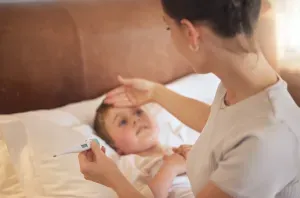Navigating Product Recalls & Secondhand Items
We seem to get instantaneous information about food recalls on the news, but when it comes to children’s toys and products, it’s harder to discover. You must pay attention and know where to look. As a parent, you want to keep your little ones safe from defective merchandise or dangerous toys. Keep reading and we will provide some ideas about secondhand products and recalls: safety tips parents should know.
Tips When Accepting Secondhand Products
Thoughtful neighbors, friends, and relatives will often “gift” you with their child’s hand-me-down toys or useful products. Always check to see if the item has been recalled for safety reasons. There are approximately 80% of recalled products that remain in homes, so don’t be swayed by thinking if your friend used it, it’s safe. Here are links to check the status of your secondhand items:
You can search the item at recalls.gov to check the product status.
This link is a great way for parents to remain updated on any recalled or dangerous products.
This government link from the Consumer Product Safety Commission is another way to stay up to date on recalled merchandise.
This link provides updates on car seat recalls.
Commonly Recalled Products
Because safety is of utmost importance, baby items and child products are frequently recalled.
Some examples include the following items:
- In 2019 almost twelve thousand children suffered an injury associated with a dresser and were taken to an ER. Regardless whether the dresser is for a child or adult, it should be anchored to the wall in back to prevent tip overs.
- All inclined sleepers for infants are now banned due to the Safe Sleep For Babies Act signed in 2022. 4.7 million Rock n Play sleepers from Fisher Price have been recalled.
- Child cribs should only be used if they have been manufactured since 2011.
- Portable playpens and cribs should be discarded if they were manufactured before 2013 due to safety issues.
- Avoid using any type of baby walker. The American Academy of Pediatrics supports their total ban.
- Avoid using car seats that are expired, have been in an accident, or have any cracks or missing parts noted.
What Parents Can Do
Don’t forget to register any new product with the manufacturer. That way you will be sure to receive an alert should it be recalled. You can also reach out to the manufacturer about any questions you have with the item and its recall status.
Use the links above to remain knowledgeable, and keep your children safe with product recalls.
Contact Pediatric Associates if you have concerns about a product your child uses or to schedule an appointment in the greater Columbus area.
The post Navigating Product Recalls & Secondhand Items appeared first on Pediatric Associates, Inc..







